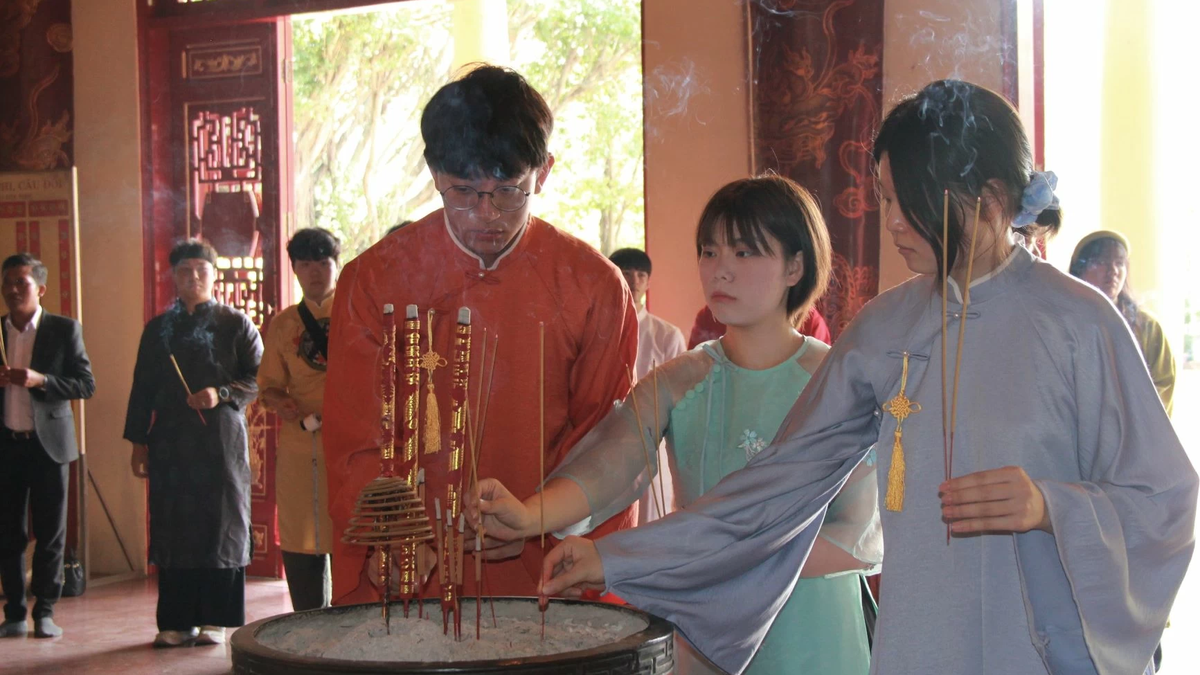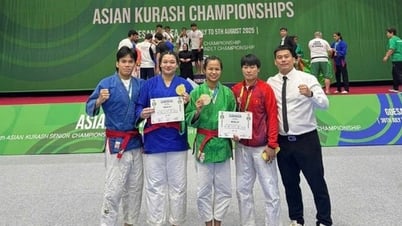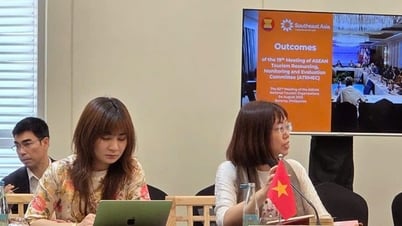
Vietnamese audiences appreciate Phuong My Chi's efforts at Sing! Asia - Photo: screenshot
Even back then, people questioned why Lac Troi was so martial and so Chinese. However, recently, when Phuong My Chi brought Lac Troi to the final stage of the Sing! Asia contest, which gathered many young East Asian and Southeast Asian singers, and sang a duet with Hoang Linh, a prominent Mandopop singer, all the previous incongruities suddenly seemed extremely reasonable.
Should there be a regular playground?
From the pentatonic melody to the very ancient lyrics, Lac Troi has a color close to Chinese music, so it can be said that it is an "easy to translate" work, just like we can imagine Murakami is a writer who is very easy to translate into English because his writing style is deeply influenced by American detective stories.
However, even Phuong My Chi's other performances at Sing! Asia, although she sang mainly in Vietnamese, still created sympathy with the Chinese audience thanks to cultural similarities.
For example, The Shadow of Vanity was inspired by The Tale of Kieu, but in classic Chinese literature such as Strange Stories from a Chinese Studio by Pu Songling, there are also many motifs about wronged women.
Or in the duet of Phuong My Chi and Kelou, the two young singers showed how smoothly Vietnamese reformed opera and Chinese opera can be combined, something that is perhaps natural when the two cultures have continuously collided for thousands of years and Vietnamese opera genres are also influenced by Chinese opera.
That musical closeness is also seen in each performance of singers from other countries in the region, such as the duet performance of Chu Phi Ca and Miyuna when they combined two rock ballads representing Cantopop and J-pop.
Going back in pop history, we know that the Cantopop heyday of Anita Mui, Leslie Cheung, Alan Tam, and Chan Wai-yan learned a lot from Japanese popular music.
These similarities raise a question: should the East Asian and Southeast Asian music markets have a regular playground to create a common identity?
Phuong My Chi sings Chopsticks in Sing! Asia
An "Asiavision"
In Europe since the 1950s, the birth of the Eurovision contest has created a common space for music artists in Europe and after more than decades, it is still among the most anticipated programs with hundreds of millions of viewers worldwide.
One of the moments that is still mentioned in the history of popular music is when the members of ABBA dressed in shiny and colorful sequined outfits, stepped onto the Eurovision stage with the song Waterloo describing love as a great battle that even Napoleon had to lose.
From Eurovision, we have had ABBA, Céline Dion. Legendary acts like Françoise Hardy, Nana Mouskouri have also participated in the contest. Eurovision has always been considered a passport to the world for many artists on the old continent.
Because before thinking about conquering distant markets, isn't it simpler to conquer "neighboring" markets, with tastes that are not too different?
Watch a performance of the song "Cut in Half a Sorrow" by Dan Truong as an advisory judge on Sing! Asia with Truong Leung Dinh.
"Cut in Half Sorrow" is a purely Vietnamese song but has a sound very close to contemporary C-pop music. When translated into Chinese and sung as a duet by a Chinese music star, it was the shortest way for it to enter the music space of Chinese audiences.
And then Dan Truong had an impromptu performance with To Huu Bang of the Chinese song "Biet Khuc Cho Nhau" (Waiting for Each Other), bringing back many memories of the time when "Tan Dong Song Ly Biet" (The River of Parting) took Asia by storm.
That said, East Asian and Southeast Asian audiences have a lot of shared memories, a lot of shared childhoods.
We were all raised on almost the same music and movies. So isn't it only natural that we come together to create an "Asiavision", a popular cultural space for the region?
Source: https://tuoitre.vn/sing-asia-va-su-ra-doi-cua-asiapop-20250803093301182.htm

































































































Comment (0)